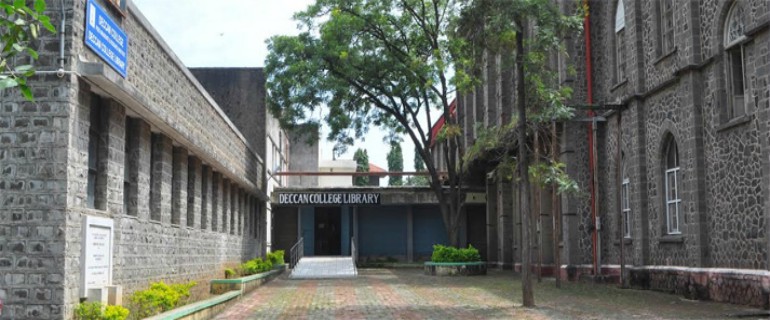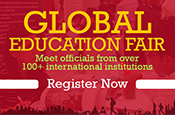The Deccan College, Post-Graduate and Research Institute, Pune is the third oldest Educational Institute in India. The Hindoo College was started on 6th October, 1821 by the Bombay Presidency Government at the initiative of its Governor, Mountstuart Elphinstone by using the Dakshina Fund, which was started by Khanderao Dabhade, a Maratha Sardar and continued by the Peshwas for propagating Sanskrit studies.
The College was closed down by the British Government in 1934, but because of the efforts of the past students and the public spirited citizens, it was reopened on 17th August 1939 as Deccan College, Post-Graduate and Research Institute, by the Transfer Deed passed by the Hon'ble Bombay High Court. The Past Students Association of this University is growing in strength and actively participates in the development of the University. As per the Transfer Deed, the State Government was asked to run the Institute in perpetuity. Subsequently, two bodies came into existence - The Deccan College Poona Trust, as the custodian of the landed property and the Deccan College, Post-Graduate and Research Institute to take care of the academic activities of the Institute.
The Department of Archaeology of this University is one of the biggest and well known in the world. Students and staff of this Department carry out research all over the country and outside and not only generate primary sources for writing history but also provide economic opportunities for all classes of the society. Under one roof, the Department has eight different labs required for carrying out basic scientific archaeological research. The Department acts as a National centre for basic research in heritage related subjects. Considering the academic contribution and its commitment to participate in Nation Building, the Department of Archaeology is recognized as Centre of Advanced Study since 1985. The Department of Linguistics studies the origin and development of four major language families and scores of dialects spoken in South Asia. Recently, the UGC has provided Special Assistance Programme (SAP) to this Department, which is enabling it to achieve its past glory gradually. Recently established Department of Sanskrit and Lexicography is teaching not only traditional knowledge system but also the art of dictionary making, which is fading away fast from the world. The pet project on Encyclopaedia of Dictionary based on historical principles being run by this Department since 1948, is unique in the entire world as it is seeking to understand meaning of different worlds changing with time and space. It has developed a huge scriptorium of over 15 million slips of references, which serves as a basic source of Dictionary writing in the entire world.
The University has a very rich and well furnished Library, which is the best in the country for subjects related to the heritage studies. The collection numbers over 1.75 lakh publications, includes research reports and books, manuscripts, journals, encyclopaedias, reference and textbooks. The University publishes its Annual Reports and Research Bulletin annually. The Annual Reports provide glimpses of research and academic activities being carried out by the University in a particular year. The Bulletin of the University mainly includes original results of the research activities carried out by the faculty and research staff.
As a leader in Heritage studies in the world, a number of Universities and Education organizations are keen to establish research collaboration with Deccan College. In the past, well known foreign Universities like Cambridge, Pennsylvania, California, Berkeley, the International Research Center for Japanese Studies, Kyoto, Japan, Research Institute for Humanity and Nature, Kyoto, Japan, etc. have had research collaborations with this University. Presently, the Seoul National University Medical College and the Tata Institute of Fundamental Research are collaborating on the study of Ancient Population and archaeo-astronomy respectively.


